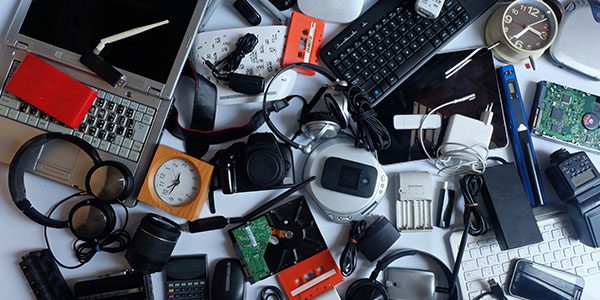Master the Demands of R2 Accreditation to Guarantee Sustainable Company Practices
Ensuring sustainable service practices has actually come to be a foundation of business responsibility in today's worldwide landscape. At the center of this movement is the R2 certification, an extensive standard that sets bench high for electronic devices recyclers and refurbishers. As organizations aim to straighten with environmentally mindful methods, grasping the demands of R2 accreditation is paramount. By adhering to these requirements, firms not just boost their ecological trustworthiness however also gain an one-upmanship in a progressively eco-conscious market. The roadmap to accomplishing R2 accreditation is diverse, entailing a deep understanding of crucial elements, precise actions towards compliance, and a dedication to ongoing upkeep. In a world where sustainability is no much longer a simple buzzword but a business crucial, delving into the intricacies of R2 accreditation is a calculated action that can lead the method for lasting success and favorable ecological impact.
Significance of R2 Qualification
Attaining R2 Accreditation is essential for services aiming to show their dedication to lasting and liable digital waste administration practices. This certification, created by SERI (Sustainable Electronics Recycling International), sets the criterion for responsible reusing practices in the electronics market. By obtaining R2 Accreditation, services signal to their stakeholders that they abide by rigid ecological, wellness, and safety and security laws while taking care of electronic waste.
Among the essential reasons R2 Accreditation is important is its focus on sustainability. With electronic waste being a substantial worldwide concern, companies need to display their commitment to decreasing the ecological effect of their operations. R2 Accreditation requires business to execute procedures that ensure the appropriate handling, refurbishment, and recycling of digital waste, therefore adding to the circular economic situation and reducing the build-up of e-waste in garbage dumps.
Moreover, R2 Qualification boosts a business's credibility and reliability. In today's ecologically mindful market, customers and partners are progressively wanting to team up with companies that focus on sustainability. By achieving R2 Qualification, firms can differentiate themselves as leaders in accountable e-waste monitoring, obtaining an one-upmanship and bring in like-minded stakeholders.
Secret Components of R2 Criteria

Steps to Obtain R2 Certification
To certify for R2 Certification, services have to carefully demonstrate compliance with a set of rigorous standards and standards. The process of acquiring R2 Certification entails several vital steps.
Next, companies need to evaluate their current methods and processes to recognize any type of gaps that require to be dealt with to satisfy the R2 Requirement. This may include applying new procedures, buying training programs, or making adjustments to existing procedures. Once any shortages are treated, companies can continue to develop a detailed management system that aligns with the R2 needs.
Complying best site with the implementation of the essential modifications, businesses have to go through a third-party audit to verify their conformity with the R2 Standard (r2 certification). This audit is carried out by a recognized accreditation body and consists of an extensive review of the company's facilities, treatments, and paperwork. Upon successful completion of the audit, services can receive their R2 Qualification, demonstrating their dedication to sustainable and accountable service techniques
Advantages of R2 Conformity
Companies that adhere to R2 compliance criteria can open a myriad of benefits in today's lasting business landscape. Furthermore, R2 conformity advertises environmental sustainability by making certain that digital waste is handled in an environmentally pleasant manner, reducing anchor the impact on garbage dumps and natural sources. Overall, achieving R2 conformity not only aids companies satisfy regulative needs however additionally promotes a culture of ecological responsibility and operational excellence.
Maintaining R2 Certification
Demonstrating a continued commitment to responsible electronic waste monitoring techniques, companies should concentrate on the precise procedure of preserving R2 accreditation. Keeping R2 qualification entails regular audits, internal evaluations, and continuous improvement initiatives to guarantee compliance with the stringent demands stated by the Responsible Recycling Practices (R2) requirement. Organizations has to remain attentive in monitoring their digital waste monitoring procedures, information protection procedures, and overall ecological efficiency to promote their R2 qualification condition.
Regular training and education for staff members are necessary to preserve R2 qualification, as team member require to be knowledgeable regarding the most current best methods and sector requirements. Keeping thorough records and paperwork of electronic waste recycling activities, downstream suppliers, and internal processes is crucial for demonstrating conformity throughout audits.
Moreover, organizations need to actively engage with their supply chain companions and vendors to make sure that all entities associated with the electronic waste monitoring procedure comply with R2 criteria. By promoting a culture of transparency, responsibility, and continuous improvement, companies can effectively preserve their R2 qualification and promote their commitment to sustainable organization techniques.
Verdict

Achieving R2 Accreditation is critical for services intending to show their commitment to accountable and lasting electronic waste management practices. By getting R2 Accreditation, companies signal to their stakeholders that they stick to strict ecological, wellness, and safety policies while managing digital waste.
Upon successful completion of the audit, businesses can obtain their R2 Accreditation, basics demonstrating their dedication to lasting and liable business practices.
Maintaining R2 accreditation involves normal audits, internal evaluations, and continuous renovation initiatives to make sure compliance with the strict needs set forth by the Accountable Recycling Practices (R2) requirement. By understanding the vital elements of R2 criteria, taking the necessary steps to obtain qualification, and gaining the advantages of R2 compliance, organizations can show their dedication to accountable digital waste management.